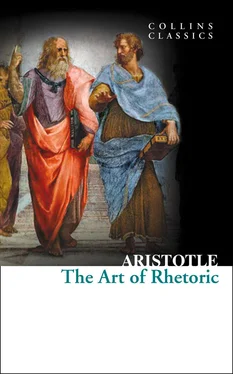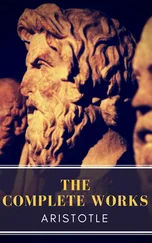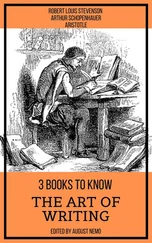2
Rhetoric may be defined as the faculty of observing in any given case the available means of persuasion. This is not a function of any other art. Every other art can instruct or persuade about its own particular subject-matter; for instance, medicine about what is healthy and unhealthy, geometry about the properties of magnitudes, arithmetic about numbers, and the same is true of the other arts and sciences. But rhetoric we look upon as the power of observing the means of persuasion on almost any subject presented to us; and that is why we say that, in its technical character, it is not concerned with any special or definite class of subjects.
Of the modes of persuasion some belong strictly to the art of rhetoric and some do not. By the latter I mean such things as are not supplied by the speaker but are there at the outset – witnesses, evidence given under torture, written contracts, and so on. By the former I mean such as we can ourselves construct by means of the principles of rhetoric. The one kind has merely to be used, the other has to be invented.
Of the modes of persuasion furnished by the spoken word there are three kinds. The first kind depends on the personal character of the speaker; the second on putting the audience into a certain frame of mind; the third on the proof, or apparent proof, provided by the words of the speech itself. Persuasion is achieved by the speaker’s personal character when the speech is so spoken as to make us think him credible. We believe good men more fully and more readily than others: this is true generally whatever the question is, and absolutely true where exact certainty is impossible and opinions are divided. This kind of persuasion, like the others, should be achieved by what the speaker says, not by what people think of his character before he begins to speak. It is not true, as some writers assume in their treatises on rhetoric, that the personal goodness revealed by the speaker contributes nothing to his power of persuasion; on the contrary, his character may almost be called the most effective means of persuasion he possesses. Secondly, persuasion may come through the hearers, when the speech stirs their emotions. Our judgements when we are pleased and friendly are not the same as when we are pained and hostile. It is towards producing these effects, as we maintain, that present-day writers on rhetoric direct the whole of their efforts. This subject shall be treated in detail when we come to speak of the emotions. Thirdly, persuasion is effected through the speech itself when we have proved a truth or an apparent truth by means of the persuasive arguments suitable to the case in question.
There are, then, these three means of effecting persuasion. The man who is to be in command of them must, it is clear, be able (1) to reason logically, (2) to understand human character and goodness in their various forms, and (3) to understand the emotions – that is, to name them and describe them, to know their causes and the way in which they are excited. It thus appears that rhetoric is an offshoot of dialectic and also of ethical studies. Ethical studies may fairly be called political; and for this reason rhetoric masquerades as political science, and the professors of it as political experts – sometimes from want of education, sometimes from ostentation, sometimes owing to other human failings. As a matter of fact, it is a branch of dialectic and similar to it, as we said at the outset. Neither rhetoric nor dialectic is the scientific study of any one separate subject: both are faculties for providing arguments. This is perhaps a sufficient account of their scope and of how they are related to each other.
With regard to the persuasion achieved by proof or apparent proof: just as in dialectic there is induction on the one hand and syllogism or apparent syllogism on the other, so it is in rhetoric. The example is an induction, the enthymeme is a syllogism, and the apparent enthymeme is an apparent syllogism. I call the enthymeme a rhetorical syllogism, and the example a rhetorical induction. Every one who effects persuasion through proof does in fact use either enthymemes or examples: there is no other way. And since every one who proves anything at all is bound to use either syllogisms or inductions (and this is clear to us from the Analytics), it must follow that enthymemes are syllogisms and examples are inductions. The difference between example and enthymeme is made plain by the passages in the Topics where induction and syllogism have already been discussed. When we base the proof of a proposition on a number of similar cases, this is induction in dialectic, example in rhetoric; when it is shown that, certain propositions being true, a further and quite distinct proposition must also be true in consequence, whether invariably or usually, this is called syllogism in dialectic, enthymeme in rhetoric. It is plain also that each of these types of oratory has its advantages. Types of oratory, I say: for what has been said in the Methodics applies equally well here; in some oratorical styles examples prevail, in others enthymemes; and in like manner, some orators are better at the former and some at the latter. Speeches that rely on examples are as persuasive as the other kind, but those which rely on enthymemes excite the louder applause. The sources of examples and enthymemes, and their proper uses, we will discuss later. Our next step is to define the processes themselves more clearly.
A statement is persuasive and credible either because it is directly self-evident or because it appears to be proved from other statements that are so. In either case it is persuasive because there is somebody whom it persuades. But none of the arts theorize about individual cases. Medicine, for instance, does not theorize about what will help to cure Socrates or Callias, but only about what will help to cure any or all of a given class of patients: this alone is business: individual cases are so infinitely various that no systematic knowledge of them is possible. In the same way the theory of rhetoric is concerned not with what seems probable to a given individual like Socrates or Hippias, but with what seems probable to men of a given type; and this is true of dialectic also. Dialectic does not construct its syllogisms out of any haphazard materials, such as the fancies of crazy people, but out of materials that call for discussion; and rhetoric, too, draws upon the regular subjects of debate. The duty of rhetoric is to deal with such matters as we deliberate upon without arts or systems to guide us, in the hearing of persons who cannot take in at a glance a complicated argument, or follow a long chain of reasoning. The subjects of our deliberation are such as seem to present us with alternative possibilities: about things that could not have been, and cannot now or in the future be, other than they are, nobody who takes them to be of this nature wastes his time in deliberation.
It is possible to form syllogisms and draw conclusions from the results of previous syllogisms; or, on the other hand, from premisses which have not been thus proved, and at the same time are so little accepted that they call for proof. Reasonings of the former kind will necessarily be hard to follow owing to their length, for we assume an audience of untrained thinkers; those of the latter kind will fail to win assent, because they are based on premisses that are not generally admitted or believed.
The enthymeme and the example must, then, deal with what is in the main contingent, the example being an induction, and the enthymeme a syllogism, about such matters. The enthymeme must consist of few propositions, fewer often than those which make up the normal syllogism. For if any of these propositions is a familiar fact, there is no need even to mention it; the hearer adds it himself. Thus, to show that Dorieus has been victor in a contest for which the prize is a crown, it is enough to say ‘For he has been victor in the Olympic games’, without adding ‘And in the Olympic games the prize is a crown’, a fact which everybody knows.
Читать дальше












